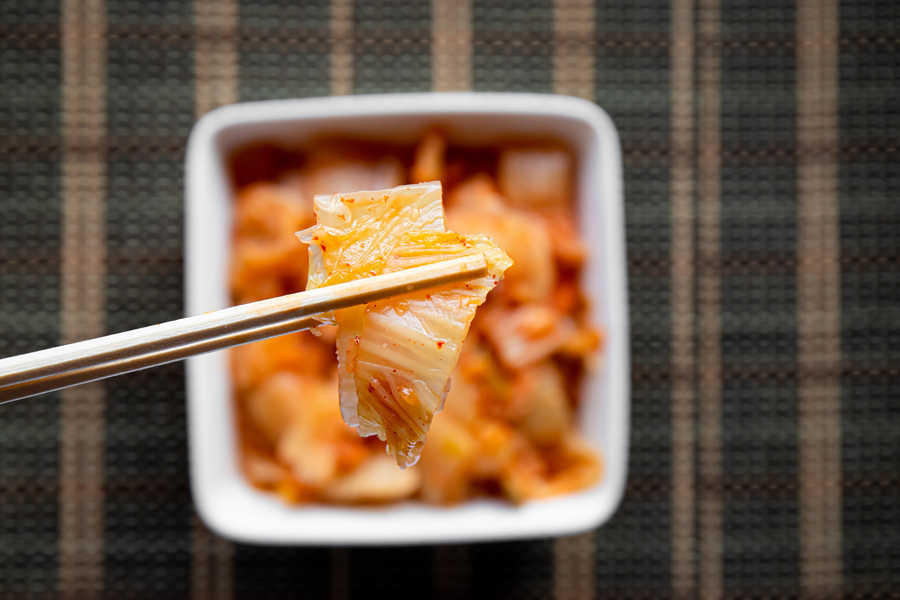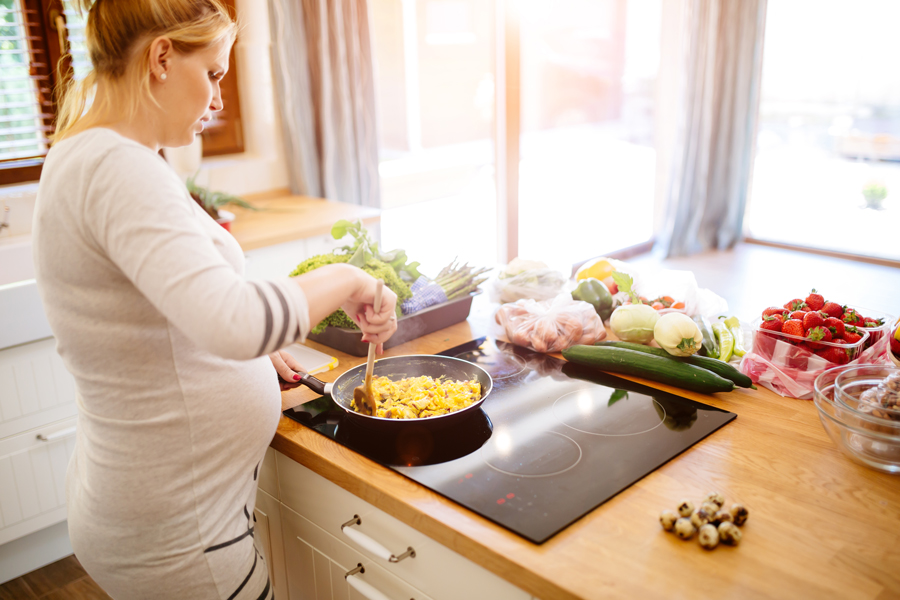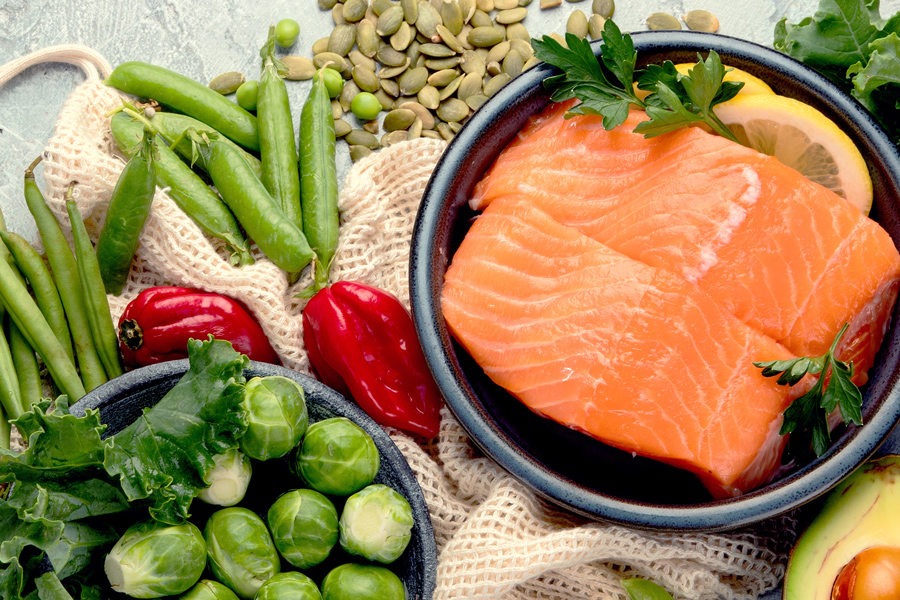Before the COVID-19 crisis shut down in-person activities, Zoe Soltanmammedova held monthly meetings of a Kids in the Kitchen Cooking Club for 4-H’ers at the University of Georgia Cooperative Extension office in Cobb County.
The popular class could only accommodate 15 students due to space limitations, and not all participants showed up every week.
Last March, when in-person activities were suspended, Soltanmammedova cancelled her March class and was unsure whether the class would continue, but students began emailing her about the possibility of a virtual format. The idea has now blossomed into a virtual class that is open to all youth, serving about twice as many students from all over Georgia and beyond, through a two-hour monthly Zoom workshop.
“We held the in-person class on Tuesday nights from 6 until 8 p.m. We had a limit of 15 people, but sometimes only five to six students would attend,” said Soltanmammedova, who has served as a Family and Consumer Sciences agent in Cobb County since 2018.
She ran the class through the summer, registering up to 120 participants in June and July as families sought at-home social activities to engage their kids while isolating due to the pandemic.
In September, Soltanmammedova joined forces with Rockdale County FACS agent MaryBeth Hornbeck, who was also interested in providing a cooking class and was inspired by the project’s success in Cobb County.
“It’s been really fun,” said Hornbeck, who worked with Soltanmammedova to plan three-month blocks of classes at a time.
Each agent broadcasts from their own home kitchen to present two recipes each month. Before each class, students are emailed recipe instructions that include guidelines on handwashing, cooking temperatures, and other food safety directives. The recipes files were designed for easy printing at home, as well as posting on social media. While one agent cooks, demonstrating for students cooking along in their own kitchens, the other monitors the Zoom chat, answering questions and engaging with students and their families.
“There was a lot of learn-as-you-go in the beginning. I wasn’t very Zoom-savvy, so I learned quickly to mute participants and have them send questions in the chat or else I’d have everyone talking at once,” Soltanmammedova said with a laugh.
The virtual format has allowed the agents to reach participants in 10 Georgia counties and four to five different states, including a participant from outside the U.S.
“So many people were looking for things to do online that were safe. Just because of the nature of social media, a lot of people shared the class with others and it ballooned pretty quickly,” Hornbeck said. “We’re in the same district, and we had some familiarity with each other, but without the virtual format an ongoing joint program in our two different counties would never have been possible.”
Incorporating Family and Consumer Sciences content in a format that is fun and educational for participants is key to the program, the agents say.
“We try to vary the recipes we present, so if we are preparing a salad or doing something on the stovetop, we can be baking something at the same time,” Soltanmammedova said.
“We started thinking more systematically about what the kids would want to make and what kinds of things we’d like to introduce them to,” Hornbeck said. “We try to make sure they are getting a variety of foods and learning a variety of cooking techniques.”
The program has also gained attention with Extension agents in other states. A FACS agent with University of Idaho Extension, who met Soltanmammedova at a national conference in 2019, reached out and now participates in the program with students in her area.
“She was interested in trying to start something for kids in her area, but she didn’t have a lot of experience with youth programming. We had a session coming up, so we invited her to join,” Soltanmammedova said.
Since April 2020, the program has reached more than 550 youth of all ages — from age 4 up to 18 — and has built a loyal fan base of students who participate regularly.
“We require an adult to be present and they will watch and ask questions as well. We go through the recipes step-by-step, and the virtual format means every participant gets a front row seat and gets to do every step,” Hornbeck said. “Often during in-person classes students would have to share equipment or ingredients, but now each person gets to work on every part of each recipe.”
The agents plan recipes according to the season and incorporate healthy, kid-friendly favorites. Among the recipes they have introduced are oven-baked chicken nuggets and stovetop broccoli macaroni and cheese; veggie-loaded turkey chili and cornbread muffins; strawberry freezer jam and drop biscuits with homemade butter; and healthy recipes to add to the holiday table, such as harvest kale salad and festive fruit crisp. In March, the program featured breakfast-for-dinner with recipes for French toast and veggie-loaded egg muffins.
“There are a good number of Extension-tested recipes that go along with the Food Talk program we offer for adults, and we try to balance that with the My Plate dietary guidelines from the U.S. Department of Agriculture,” Hornbeck said.
After the fall season, the agents sent out a survey to participants to gather ideas for what students would like to learn. They were surprised to see that students were interested in learning more advanced cooking techniques, such as popovers.
“This is kind of a complicated recipe and often takes multiple tries to get it right, but about three-quarters of the kids’ recipes turned out,” Hornbeck said.
It is gratifying to see the participants create friendships with other students and to see whole families getting involved, Soltanmammedova said.
“The students interact with each other and many parents are very involved. They are interested in the nutrition topics we cover and often siblings participate together,” she said. “We make sure the recipes are budget-friendly and that ingredients are easily accessible so it is easy to participate.”
Responses from parents and students have been overwhelmingly positive.
“It was a great opportunity to spend one-on-one time with my daughter. We have both learned so much about cooking — and each other! She looks forward to cooking for the family and she’s very proud of her work,” one parent wrote.
A student responded, “It was such a fun thing to do with my sister. I found out that cooking together was a hobby of ours! We’ve been making things together ever since.”
Even if participants haven’t been to a previous class, the agents review basic kitchen skills and techniques so the classes can be enjoyed as a series or as a stand-alone class.
“We make sure newcomers don’t feel left out. We review topics such as food safety, handwashing and knife skills every time, as well as nutrition topics related to the recipes,” Hornbeck said.
A favorite moment for many participants is at the end of each class when students present their completed dishes to the camera.
“They love to show what they’ve made,” Soltanmammedova said.
The agents ask parents and students to take before-and-after pictures from ingredients to completed dishes and they have presented the program results at the Georgia Nutrition Council’s annual conference — virtually, of course.
“It’s been so much fun, even for my own mental health and job and life satisfaction,” Hornbeck said. “And it feeds right into our Extension mantra and 4-H model. It is everything we want to accomplish in Extension in the 21st century.”
Although the program is open to all youth — not just 4-H club members — participants must complete 4-H Code of Conduct and Georgia 4-H Virtual Programming forms prior to participating in the online cooking club. Forms will be sent out after registration and must be returned prior to the cooking class.
The next session of the virtual cooking club is set for 5 p.m. Tuesday, April 20. For more information and to register for the free classes, visit bit.ly/springcookingclub.





